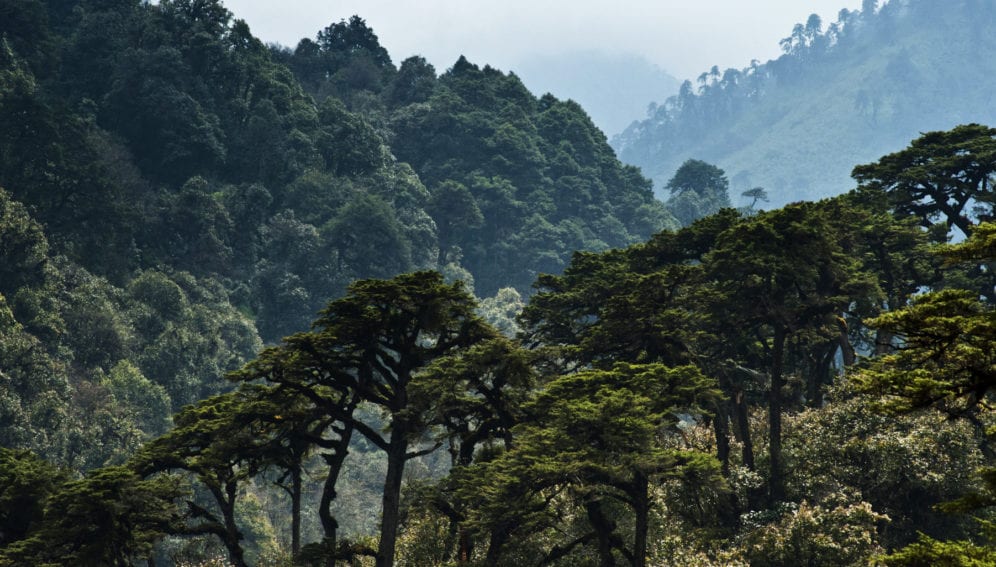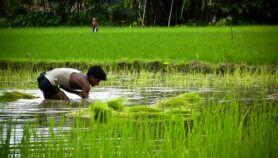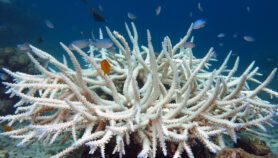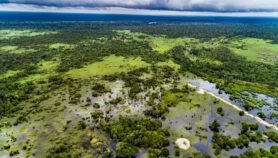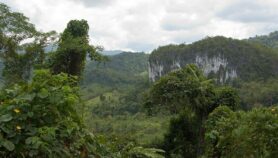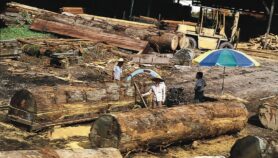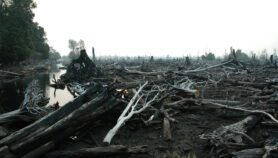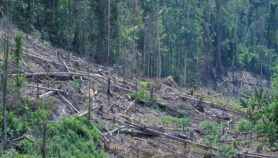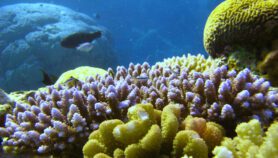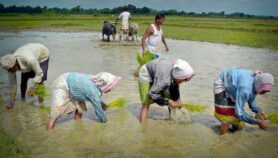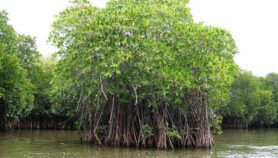Send to a friend
The details you provide on this page will not be used to send unsolicited email, and will not be sold to a 3rd party. See privacy policy.
[BANGALORE] Losing animals that disperse seeds of large tree species could decrease the amount of carbon stored in a majority of the world’s tropical forests, says a new study.
“We found that large-seeded, animal-dispersed tree species attain greater adult sizes, and thus store more carbon than small-seeded animal-dispersed ones,” says Anand Osuri, researcher at the National Centre for Biological Sciences, Bangalore, and lead author of a paper on the study published April in Nature Communications.
Forests are important carbon sinks, known to mitigate human-caused climate change. One process that boosts carbon sequestration is seed dispersal, which can be abiotic (wind or water-driven) or biotic (aided by animals).
Over-hunting of fauna and subsequent decline in animal populations (defaunation) across many biomes, including tropical forests, can affect these animal-seed dispersal processes, which, in turn, affect survival of plant species and change tree species composition of forests.
Osuri was part of a team of international scientists that scoured through published floras and online databases to obtain information on seed dispersal modes and carbon storage capacities of more than 2,100 tree species across the tropical forests of Africa, Americas, Australia, South Asia and South East Asia.
They simulated varying levels of declines in numbers of large-seeded, animal-dispersed trees — which would be the case if frugivores are lost — and quantified resulting changes in carbon storage across these scenarios.“Changes in carbon storage that you see in response to a loss of animal-seed dispersers are very likely driven by changes in stand volume,” Osuri says. Forests of South Asia, Africa and the Americas — where large-seeded animal dispersed trees dominate — showed significant losses in carbon with declines in numbers of large-seeded tree species, but those in South East Asia and Australia did not — because tropical forests are dominated by abiotically-dispersed tree species which are large and store the most amount of carbon.
“It's interesting that the effect of defaunation is quite variable across the tropics, given the co-evolution of the current suite of dispersers,” says Scott Goetz, deputy director and senior scientist, Woods Hole Research Center, Massachusetts.
“The role of climate regulation played by tropical forests will not be as effective if we protect the forests but not the animals which disperse tree seeds,” says Osuri, who now plans to examine the effects of defaunation on post-seed dispersal stages such as seed survival and seed establishment, which will also play a role in determining tree composition in a forest.


